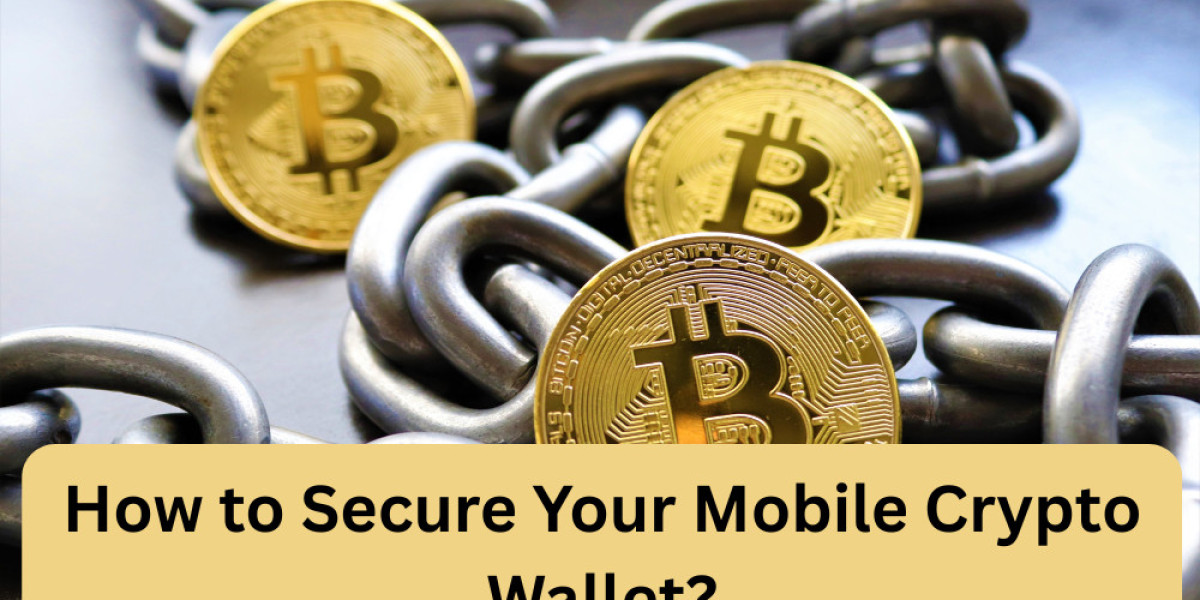With more people managing crypto assets through mobile apps, security is more important than ever. Whether you're storing Bitcoin, Ethereum, Dogecoin, or other tokens, your smartphone can be both a powerful tool and a potential risk. If not appropriately protected, a mobile crypto wallet can be an easy target for hackers.
This guide explains how to keep your digital assets safe and how to pick the best secure crypto wallet app in 2025.
Why Mobile Crypto Wallet Security Matters in 2025?
The convenience of accessing your cryptocurrency wallet from your phone has made mobile usage skyrocket. But convenience comes with risk. Mobile wallets are more vulnerable to phishing, malware, and SIM swap attacks.
When your private keys are stored on a device that’s always online, you must take steps to protect them. The hottest crypto wallets are only safe if users manage them properly.
What Is a Secure Mobile Crypto Wallet?
A secure crypto wallet on mobile should:
- Keep private keys encrypted and device-bound.
- Support blockchain wallet encryption.
- Allow backup through a seed phrase.
- Provide multisig or multisignature options.
- Avoid storing sensitive data on third-party servers.
Some of the safest crypto wallets in 2025 offer added protection, such as biometric access, decentralized key storage, and hardware integrations.
Top Features of a Secure Cryptocurrency Wallet App
- Encrypted backups.
- Open-source or independently audited code.
- Native support for tokens and coins across chains.
- Compatibility with hardware wallets like Ledger or Trezor.
Best Practices to Secure Your Mobile Crypto Wallet
1. Use Strong Authentication
A secure crypto wallet app includes fingerprint or facial ID protection. Always enable two-factor authentication (2FA) for extra security. Popular options like MetaMask, Trust Wallet, and Coinbase Wallet support these features.
2. Protect Your Seed Phrase
Your seed phrase is your master key. Write it down and store it offline. Never take a screenshot or save it in cloud storage.
3. Update Your Apps and Phone Regularly
Outdated apps are easier to exploit. Always keep your crypto wallet, mobile OS, and antivirus up to date.
4. Use a VPN and Avoid Public Wi-Fi
When accessing Web3, DeFi, or decentralized applications, use a secure connection to avoid data interception.
5. Lock Your Device
Ensure your phone has a lock screen, and enable auto-lock on your wallet app.
Choosing the Best Secured Crypto Wallet App
Some wallets balance convenience and security better than others. Here are the top contenders for 2025:
Wallet | Type | Highlights |
MetaMask Mobile | Hot Wallet | Web3 access, Ethereum & tokens, open-source |
Trust Wallet | Hot Wallet | Supports multiple coins and tokens, good UX |
Coinbase Wallet | Hot Wallet | Easy DeFi access, links with a Coinbase account |
Ledger + App | Cold Wallet | Hardware + mobile combo, top-tier encryption |
SafePal | Hybrid Wallet | Offline signing with a mobile interface |
If you're new to crypto, these apps offer simple interfaces and strong security measures to protect crypto assets.
Hot Wallet vs Cold Wallet: Which Is Better for Mobile?
Hot wallets (like MetaMask or Trust Wallet) are great for daily use, trading, and exploring decentralized exchanges.
However, integrating a cold wallet like Ledger with your mobile app is a better choice for larger holdings or long-term storage.
Cold vs Hot Wallet on Mobile
- Hot wallets: connected to the internet; ideal for active users
- Cold wallets: offline, safer; ideal for saving digital assets
Many advanced users now use a secured crypto wallet on mobile for access and a hardware wallet for storage.
Mobile Threats to Watch Out For
- Fake Wallet Apps: Only download from verified sources like Google Play or the App Store.
- Phishing Links: Especially through Web3 and DeFi platforms. Always double-check URLs.
- SIM Swap Attacks: Never link your crypto wallet to your phone number.
- Malware: Install a mobile antivirus and avoid suspicious downloads.
Final Tips
- Enable all security features in your wallet app.
- Never share your private keys or seed phrase.
- Avoid storing large amounts of coins in hot wallets.
- Use multisig wallets for added protection if supported.
In 2025, the line between convenience and risk in crypto wallets is thinner than ever. But with the right setup and awareness, your mobile crypto wallet can be secure and accessible.


